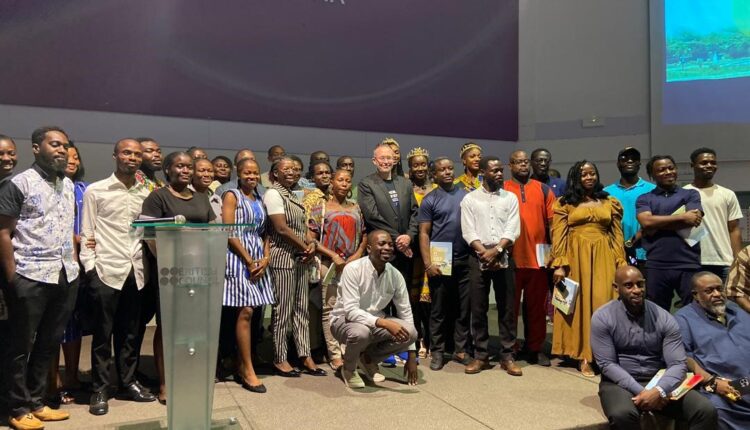The Tourism Entrepreneurship Workshop (TEW), led by Dr Damien L. Duchamp, provided an insightful platform for exploring innovative strategies to enhance Ghana’s tourism sector.
Held at the British Council in Accra, the workshop focused on creating unique, locally-driven tourism experiences that could attract visitors from around the world, while also fostering economic growth within local communities.
Dr. Duchamp emphasized the value of experiential tourism, particularly in agriculture-based ventures. He highlighted the potential for Ghanaian farmers to transform their properties into immersive agritourism destinations.
“People spend big money to visit where cocoa comes from,” he noted, encouraging local entrepreneurs to leverage Ghana’s rich agricultural heritage.
By offering hands-on experiences—such as learning how to cultivate, cook, and process cocoa—farm owners can attract international visitors eager for authentic, educational experiences.
A key takeaway from the workshop was the strategy of integrating sustainability with tourism. Dr Duchamp shared an inspiring example from Spain, where an Irish couple revitalized a fire-damaged property with solar-powered yurts and eco-friendly infrastructure, eventually turning it into a profitable Airbnb business.
He suggested that Ghanaian entrepreneurs could adopt similar models, emphasizing the importance of starting small and reinvesting profits into expansion.
In addition to agritourism, the workshop explored the concept of volunteer tourism, or “voluntourism.” Dr. Duchamp recounted the story of a family that visited Ghana and funded the construction of a borehole while also donating essential health supplies.
This model, he explained, allows visitors to contribute positively to local communities while also fostering long-term engagement between tourists and host regions.
Another significant discussion centred on the role of Ghana’s tourism organizations in marketing and infrastructure development. Dr. Duchamp highlighted the need for localized Convention and Visitors Bureaus (CVBs) that can focus on promoting specific regions, similar to structures found in major tourism-driven cities like New York.
This approach would ensure better coordination and targeted marketing to boost Ghana’s tourism potential.
The workshop also introduced the concept of SMIRF tourism—Social, Military, Educational, Religious, and Fraternal travel—showcasing different niche markets that Ghana could tap into. Dr. Duchamp stressed that many international students and organizations seek culturally immersive experiences and are willing to pay for well-structured, academically enriching programs in destinations like Ghana.
However, he cautioned that much of the current revenue from these programs is captured by external agencies, urging local entrepreneurs to establish direct partnerships with educational institutions to retain more economic benefits within the country.
Despite Ghana’s rich cultural heritage and tourism potential, Dr. Duchamp acknowledged challenges such as infrastructure gaps and issues related to law enforcement practices that could deter visitors. He called for proactive measures to enhance tourist safety and streamline travel experiences to ensure a more welcoming environment for international guests.
The Tourism Entrepreneurship Workshop concluded with a call to action for Ghanaian entrepreneurs to harness the country’s untapped tourism potential.
Whether through agritourism, voluntourism, cultural experiences, or niche markets, the workshop highlighted numerous pathways to transform local businesses into global attractions.
“Sometimes people just need an excuse to travel, and Ghana has everything it takes to be that perfect destination” Dr. Duchamp remarked.


Comments are closed.